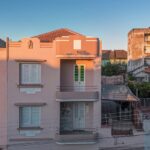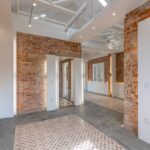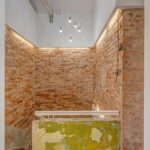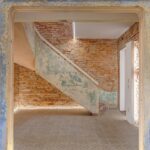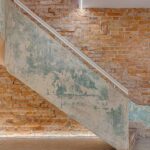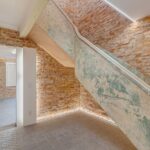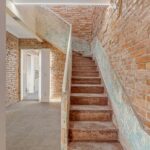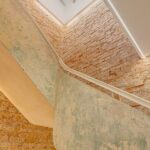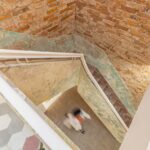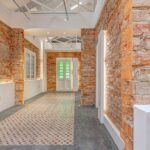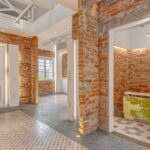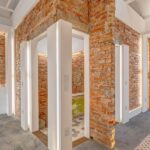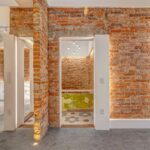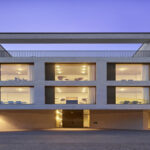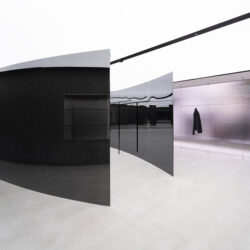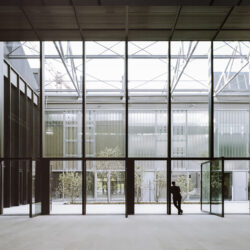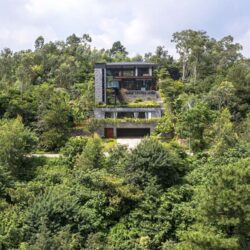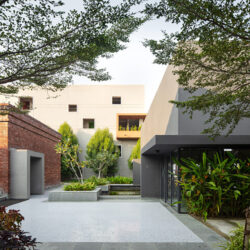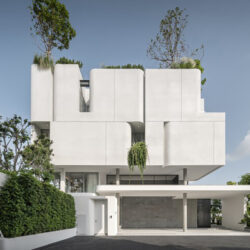Introduction
Coworking Casa Pedra, situated in Santa Maria, Brazil, is a testament to architectural preservation and adaptive reuse. Originally the headquarters of the Correio do Povo newspaper, the building, constructed in 1939, boasts Art Deco attributes that reflect the architectural trends of its time. Designed by Q_arts Arquitetura and led by Clarissa de Oliveira Pereira, the project aimed to retain the building’s original charm while accommodating a modern coworking space.
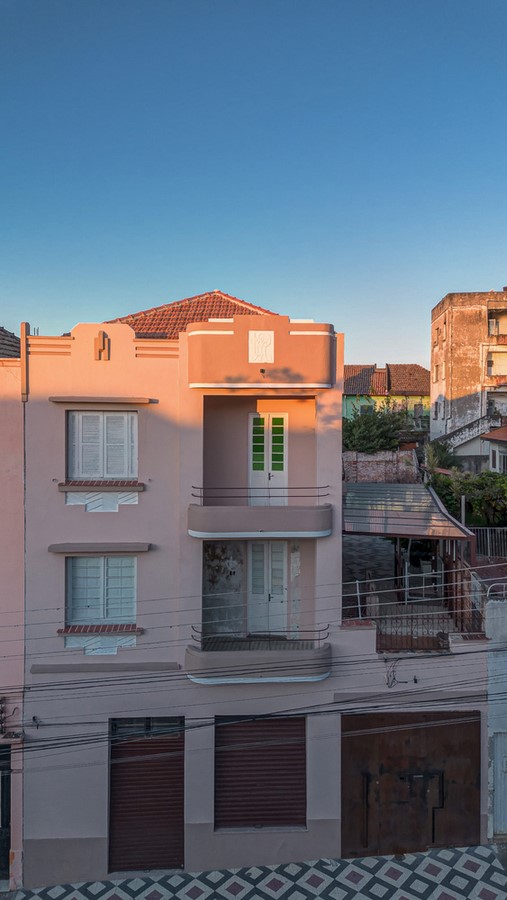
Architectural Heritage
The building’s original configuration as a single-family residence with a commercial ground floor is evident in its Art Deco features, particularly noticeable in the facade facing the historic Avenida Rio Branco. The facade’s division into Base, Body, and Crowning follows the principles of Art Deco composition, with subtle decorative elements such as curved balconies and relief applications contributing to its aesthetic appeal.
Adaptive Reuse
The Coworking Casa Pedra project focused on integrating modern functionalities while preserving the building’s architectural integrity. Limited interventions were made to ensure accessibility and compatibility with structural, electrical, and lighting systems. Integration of spaces on the third floor enhanced collaborative work environments, while the covering of the lateral patio paid homage to the building’s former resident, incorporating motifs reminiscent of the original ceiling design.
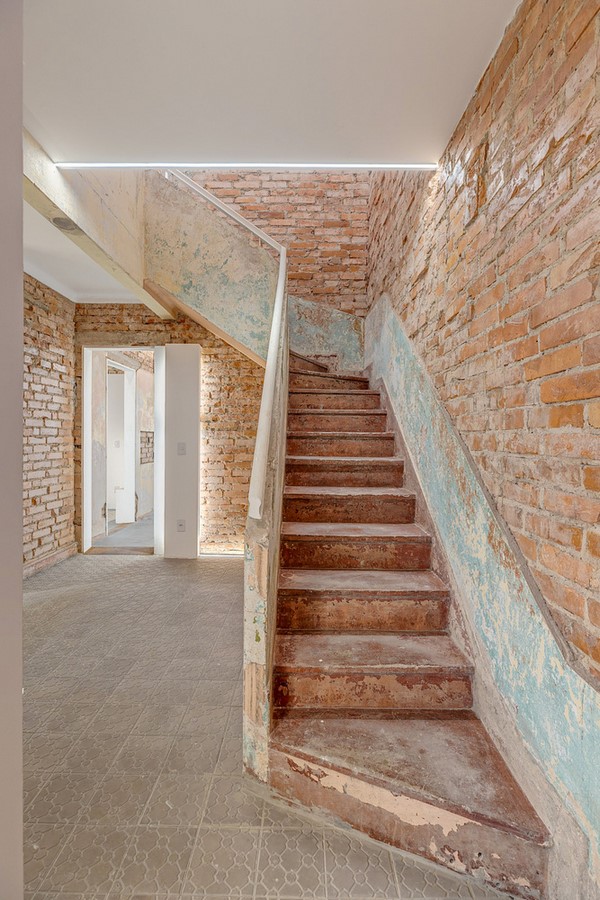
Cultural Preservation
The building’s cultural significance was further emphasized when it was listed as a cultural asset by the municipality. This recognition underscores the importance of preserving architectural heritage and adaptive reuse projects like Coworking Casa Pedra, which breathe new life into historic structures while honoring their past.
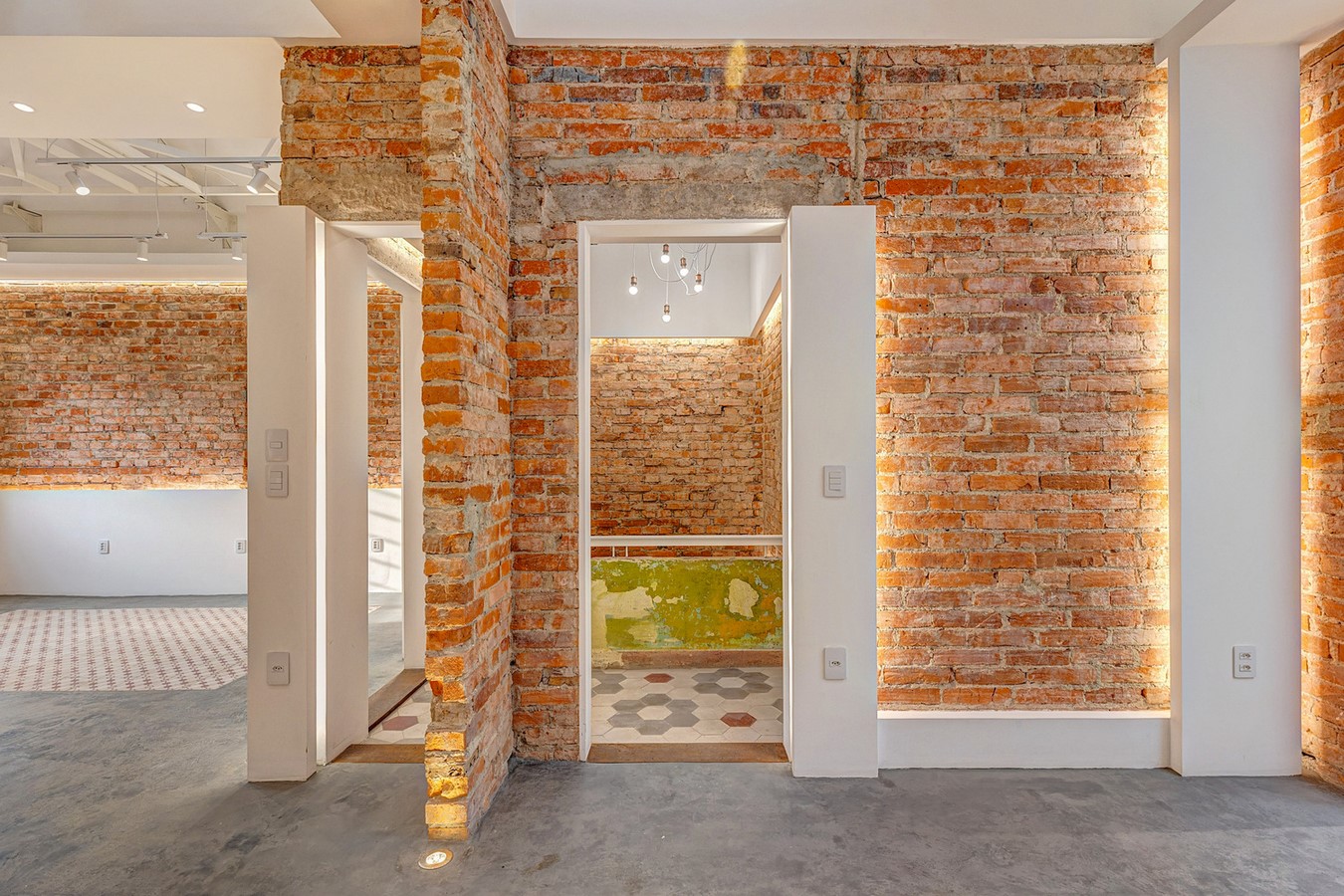
Conclusion
Coworking Casa Pedra stands as a shining example of architectural preservation and adaptive reuse, seamlessly blending modern functionality with historical charm. Through thoughtful design and meticulous preservation efforts, the project successfully transformed a historic building into a vibrant coworking space, ensuring its legacy for future generations to appreciate.



